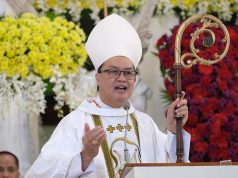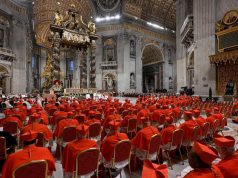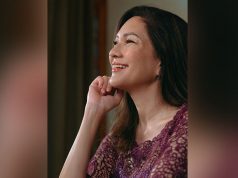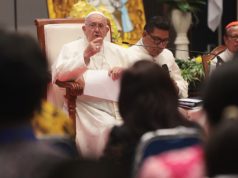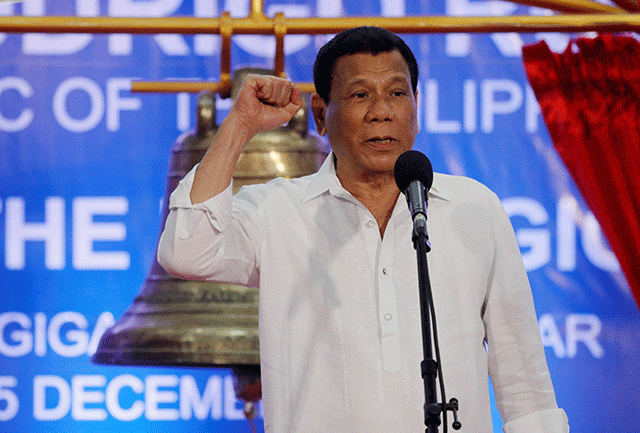
Malacañang denied that it was President Rodrigo Duterte being alluded to during a sermon about bullies by Manila Archbishop Luis Antonio Cardinal Tagle, even though the president admitted he is a ‘bully to enemies of the state’ and has repeatedly thrown expletives at members of the church clergy.
Presidential spokesperson Salvador Panelo deflected questions about Tagle’s homily during the opening Simbang Gabi mass at the Manila Cathedral on Sunday where he said power should not be abused by those in power
“I agree, but who does he refer to? Because those in power would also apply to those in the Church. If you use the pulpit to bully people, then it’s the same. If the message is in generic terms, then I agree,” Panelo said during a briefing on Tuesday.
Panelo added that the president was against any abuse of power.
In his second state of the nation address, Duterte said he was “a bully to the enemies of the state.”
“They accused me of being a bully. That’s true. I said I’m a bully to the enemies of the state. If you don’t want to talk to me, I don’t want to talk to you,” Duterte said then.
The president is the most powerful government official in charge of the entire executive branch of government including the military and police.
Some vocal administration critics have quoted Tagle’s warning in their criticism of the firebrand president.
bully
noun
a person who uses strength or power to harm or intimidate those who are weaker.#nuffsaid https://t.co/AjKxSCsA6W— Dan Santos (@DanSantos8) December 18, 2018
“Do not bully anyone. Do not use your power to disrespect anyone. Do not use your power to coerce anyone,” the Tagle said during the homily.
Tagle did not name any leader or official during the sermon.
Strained relations between church, Duterte
2018 saw Duterte, an admitted non-practicing Catholic who “believes in God but not in religion” engage in a series of heated exchanges with members of the Catholic Church.
Duterte claimed to distance himself from Catholicism after he was abused by a Catholic priest as a child even though he attended mass earlier in his administration.
He was criticized for asking “Who is this stupid God?” during a speech in June 2018 while discussing the biblical creation story.
He later apologized and explained that he was merely critiquing mainstream interpretation of the Old Testament God, saying that his ‘God’ was not stupid.
Duterte tried to repair the relationship with the Catholic denomination when he formed a committee with religious leaders and he met with members of the Catholic Bishops Conference of the Philippines.
He also imposed a “moratorium” on himself on making statements against the church.
However, the peace did not last long. In early July 2018, he drew flak for saying that he would resign if anyone could show him a selfie with God. He also questioned the purpose of donations to the church later that month.
In August 2018, he called the Catholic Church “the most hypocritical institution” and differentiated his own understanding of God from that taught by the clergy.
His latest exchange was with Caloocan Bishop Pablo Virgilio David, whom he suspected of stealing church donations and using illegal narcotics.
David, a critic of Duterte’s war on drugs, responded by saying that the president was “sick.” The response prompted Duterte to call Catholic teaching “archaic” and warned audience members during a speech against participating in organized religion.
Duterte complained in a speech in December 2018 about being criticized by bishops.
“These bishops, kill them. They are useless, all they do is criticize,” Duterte said at an awarding ceremony at the palace. Some Catholic church members expressed concerns about the strained relations between the chief executive and the clergy.
His spokesperson Panelo said that Duterte’s statement was merely “hyperbole” and that the statement should be treated by the public purely as a figure of speech.





